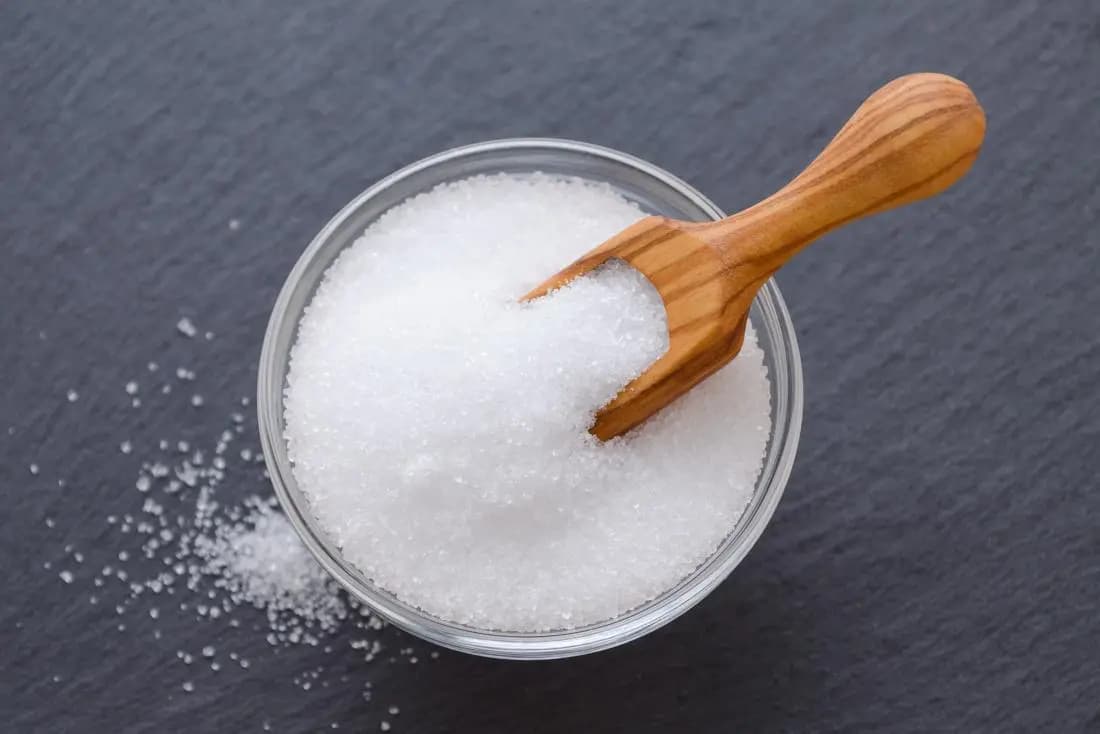Are you looking for a way to satisfy your sweet tooth without consuming too much sugar? If so, you may have heard of sugar alcohols. Sugar alcohols are a type of carbohydrate commonly used as a sugar substitute in many foods and beverages. They are often found in sugar-free or low-calorie products and are used to provide sweetness without the added calories of regular sugar.
But what exactly are sugar alcohols, and how do they compare to regular sugar? Let’s take a closer look.
Sugar alcohols are a type of carbohydrate that have a chemical structure that is similar to both sugar and alcohol. They occur naturally in some fruits and vegetables, but they can also be produced commercially through a chemical process that involves hydrogenation of sugars. Some common examples of sugar alcohols include xylitol, sorbitol, erythritol, and maltitol.
One of the main benefits of sugar alcohols is that they are lower in calories than regular sugar. For example, while regular sugar contains four calories per gram, most sugar alcohols contain around two calories per gram. This can be especially helpful for individuals who are looking to lose weight or manage their blood sugar levels.
Additionally, sugar alcohols are less likely to cause tooth decay than regular sugar. This is because sugar alcohols are not broken down by the bacteria in your mouth in the same way that regular sugar is. As a result, they do not produce the same amount of acid that can lead to tooth decay.
However, it’s important to note that sugar alcohols can have some potential side effects. When consumed in large quantities, they can cause digestive issues like bloating, gas, and diarrhea. Additionally, sugar alcohols can have a laxative effect and may cause a sudden increase in bowel movements. It’s important to consume sugar alcohols in moderation and to be aware of their potential side effects.
If you’re interested in using sugar alcohols as a sugar substitute, there are many products available that use sugar alcohols instead of regular sugar. These products include sugar-free gum, candy, and beverages, as well as some baking ingredients. However, it’s important to read labels carefully and to be aware of the total carbohydrate content of these products, as they can still affect blood sugar levels.
There are several fruits that naturally contain sugar alcohols, which can provide a sweet taste without the added calories of regular sugar. Some examples of fruits that contain sugar alcohols include:
-
Apples: Apples are a good source of sorbitol, a common sugar alcohol used as a sugar substitute. Sorbitol is also found in some sugar-free chewing gums and candies.
-
Apricots: Apricots are a natural source of sorbitol and are often used in dried fruit snacks.
-
Plums: Plums contain sorbitol and small amounts of other sugar alcohols like mannitol and xylitol.
-
Peaches: Peaches contain sorbitol and small amounts of other sugar alcohols like mannitol and xylitol.
-
Pears: Pears are a good source of sorbitol and can be used in cooking and baking as a sugar substitute.
Until Next Time… Be Well!
RSN
P.S. Check your BMI to see if you’re at a healthy weight.
